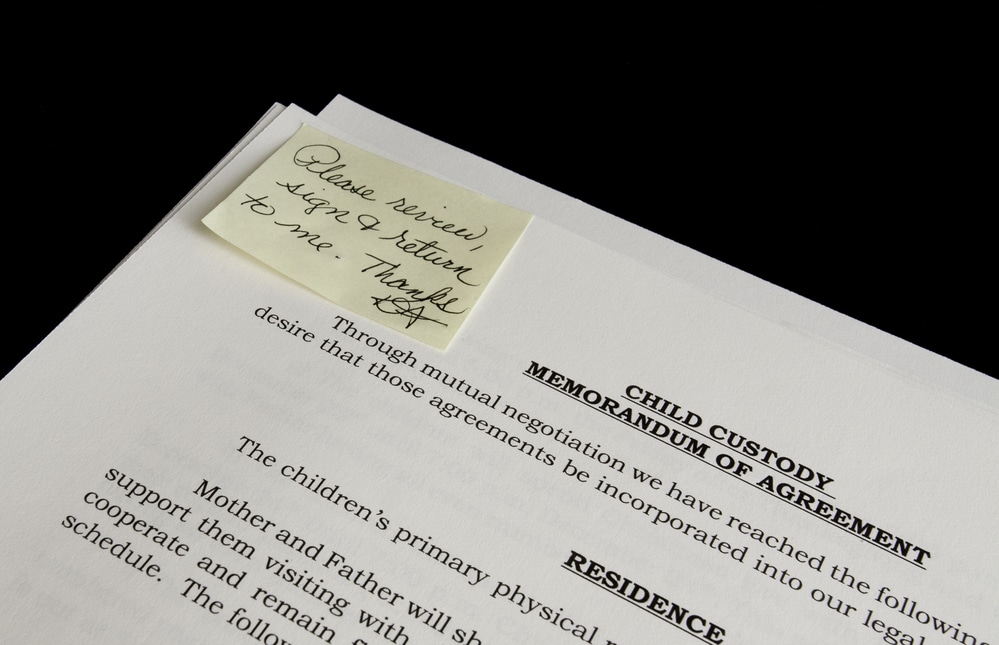
21 Oct How to Protect Your Parental Visitation Rights
For many parents, one of the priorities during a divorce is obtaining child custody (aka parental time-sharing) rights. Having physical custody of your child or children makes you a caregiver, with all of the accompanying responsibilities including housing, feeding, and medical care and attention.
If you are not granted physical custody of your child, and thus cannot have your child live with you, you will need to fight for the right to have your child visit you. Whether for child custody or visitation, these battles usually end up taking place in courtrooms. At the end of the day, the struggle is undoubtedly worth it if you win visitation or custody rights for your child.
However, what few people realize about this scenario is that the fight for these rights is only the beginning – once you have won the ability to visit with the child, you have to fight to keep it. Visitation or custody rights can be revoked by the courts if a judge feels that, as a parent, you are not fulfilling your responsibilities when visiting your child, or that you are creating an unsafe or unhealthy environment for the child.
Thankfully, there are numerous steps you can take to make sure that your rights as a parent are not revoked.
1. Understand the Terms of Your Child Custody Plan
During the child custody proceedings, the judge, with the help of your respective attorneys, fashioned a custody or visitation schedule with you. This agreement lists the terms of your custody or visitation, including answers to the following questions: Which parent (if either) has sole physical custody? If both parents have joint physical custody, what days will the child or children be with which parent? If one parent has sole physical custody, how will the other parent visit the child (if at all), when, and for how long? Are visitations supervised (for example, with the presence of a social worker) or unsupervised? All of these are questions that are addressed in your custody or visitation agreement, and it is important for you to review them and understand them. If you know what is expected of you, you will find it that much easier to stick to your agreement and maintain your visitation or custody rights.
2. Stick to the Terms of the Parenting Plan
The main reason that your spouse or another interested party can file to have your custody or visitation rights revoked is if you do not follow the agreement that was set forth during the divorce proceedings. This means being late picking up your child or missing your visitation time altogether; trying to see your child on days that you are legally not allowed to (without the permission of the other parent); and (if your visits are supposed to be supervised) trying to see your child without supervision (that has been approved by the courts). Stick to the terms of your agreement, and you can be confident that there is almost no legal reason for you to have your visitation rights revoked or negatively revised.
3. Be an Active Parent
It is important to demonstrate to your spouse, to the adult supervising your visits (if they are supervised), to the courts that you are fit to be a parent, and as such, it is important to take an active role in the life of your child. Talk to the child and show an interest in his or her life; try to take the child to fun activities that are both enriching and entertaining, and do your best to demonstrate that you care about and appreciate him or her. If the courts believe that you are not actively participating in the upbringing of the child, they may decide that you do not deserve to have custody or visitation rights because the other parent (or a third party) would make a better impact on the child by caring more extensively for him or her.
4. Create a Safe Environment for your Child
The most serious reason you could get your custody or visitation rights revoked is for creating an unsafe or unhealthy environment for your child. This includes physical, mental, and emotional safety and health, and encompasses everything from neglect (not feeding your child, not providing necessary medical care, or not providing emotional support) to abuse (physically harming the child, or verbally abusing him or her). Furthermore, the “environment” you create extends beyond just you and your child; if you are indirectly harming the child’s health (such as by smoking or feeding them harmful foods), exposing the child to traumatic experiences or people (such as having people in your house that may be a bad influence on the child), or putting your child in harm’s way (such as driving recklessly with them in the car, or not child-proofing your house), your rights are likely to be revoked.

